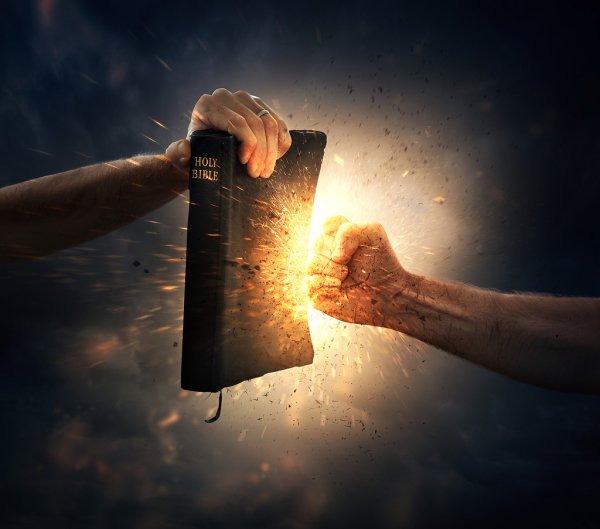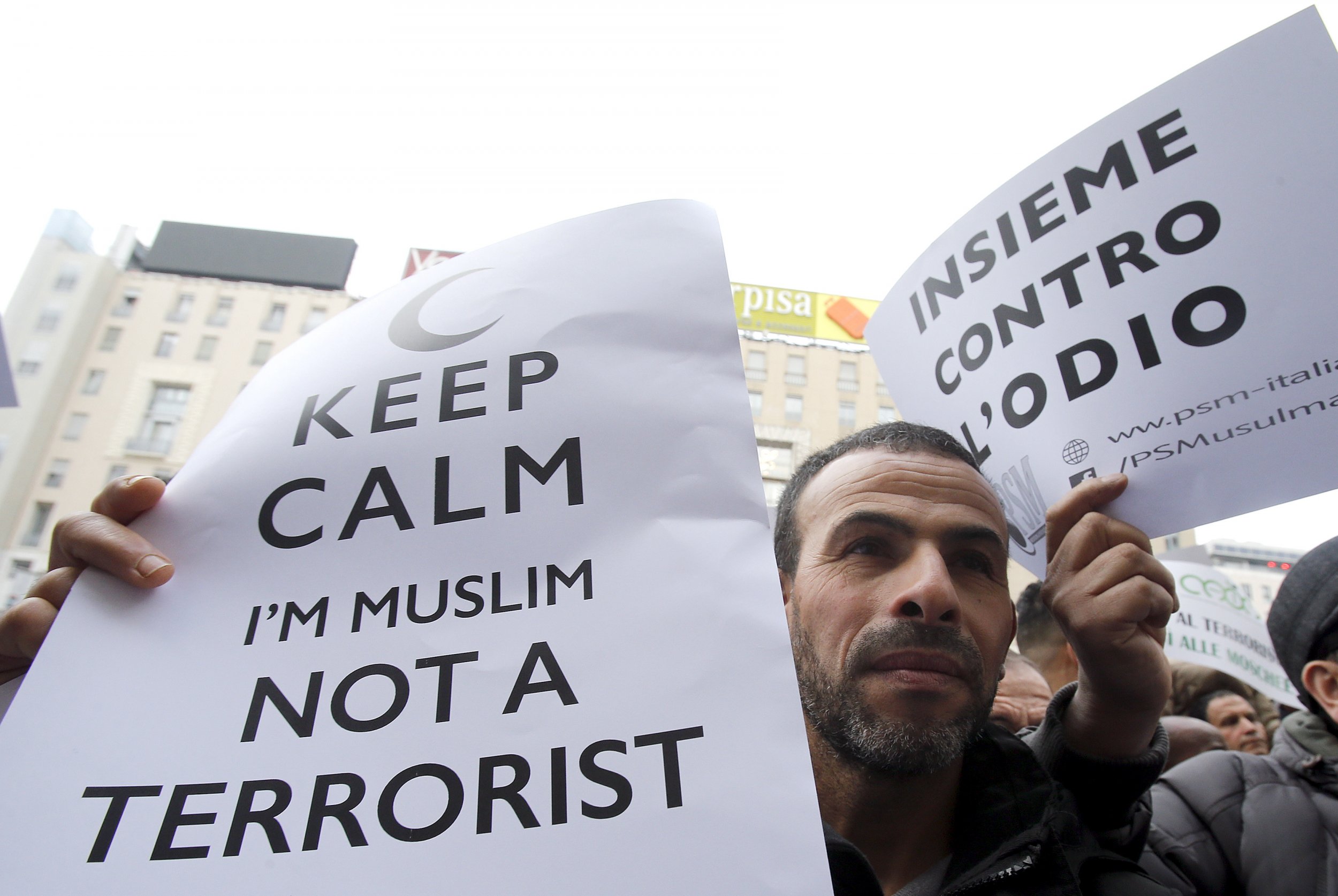The President that was supposed to know all things due to the level and quality of intelligence accessible to him while commenting and commiserating on the Rukuba incident, told the world all what the massacre and deaths on the road was not but what it is. This was how Boko Haram was rationalised until it became an enigma and a national worry. If we base our judgements (as the nation’s government often do) on what we see, then we’ve not looked deeply. Be that as it may

This my submission on violence and religion in God’s name in an age of conflicts is going to be somewhat faith based, and that sounds unlike me. A me, who have as a matter of principle gave not only a wide berth but also often steer clear from anything or any discussion that has got anything to do with any tincture of anyone’s moral suasion and persuasions in that realm of our existence.

I have always considered faith and religion as if both were the deep things of life and living, and thus, unexplainable pact between the Man, his faith and the Godhead. “Faith is a negation of reason,” writes British philosopher A.C Grayling. His words sum up the feelings of countless writers and philosophers who over the centuries have claimed that faith and reason are incompatible. Some religious beliefs do in the face of all reason.
But consider this: Many strongly held scientific beliefs have proved to be wrong. Does that mean that all scientific beliefs are wrong or are not based on reason? Why view religious beliefs any differently? In fact the faith described in the Bible I want to believe does not exist without knowledge, and is, also, solidly based on knowledge and sound reason. Hence, True faith and reason are compatible.

The Bible says, for example, that if your worship is to be “acceptable to God,” it must be “a sacred service with your power of reason.” In other words, you must worship God “in a way that is worthy of thinking beings.” So the faith described here is not something blind and irrational, or a leap of faith, as some are wont to call it. And it is not credulity. Rather, it is something you have thought through carefully–resulting in trust in God and his Word, which is firmly based on reason.
Of course, if you are to reason properly, you need accurate information. Even the most powerful computer programmes designed on solid principles of logic will come up with some very strange conclusions if they are fed inaccurate data. Likewise, the quality of your faith will depend greatly on what you hear or on how dependable the information you feed your mind proves to be. Appropriately, faith follows the things heard and test out the things you hear before believing them.
A fundamental requirement for faith therefore is “an accurate knowledge of truth, free from misleading beliefs, whether they are scientific or religious.
Why should you do research and test out your beliefs? Because faith based on falsehood is only a delusion. True faith is the assured expectations of things hoped, the evident demonstration of realities though not beheld. Clearly, far from being naive, a person with real faith has based his beliefs on a careful scrutiny of all available data.
Reasoning on such information produces the conviction that even things that cannot be seen with the literal eye are, nonetheless, realities. What, though, if what you learn seems to contradict some of your deeply held beliefs? Don’t ignore it, there may well be times when it is eminently reasonable to consider powerful evidence that appears to contradict powerful evidence that appears to contradict what you believe.
The kind of faith that is compatible with reason. Many people have “inherited” their religious beliefs and have never seriously examined them in the light of reason. Yet, it is not a sign of disrespect to examine what you believe; to test the inspired expressions so as to prove to yourself that your thinking is in harmony with the creator’s will. If you do that, you will be in a position, even when your beliefs are challenged, to make a defense before everyone that demands of you a reason for the hope in you.
The essence of religion itself has become a symbol of strife and hostility. Moslems and Christians have also set a stage and a montage theme for many violent confrontations. This themes are quite contradictory to the themes of peace and love and piety expounded by religion. Moslems and to a large extent Christian denominations have attacked one another over issues that were mundane and self-serving. The rivalry established has intensified in recent years in all corners of the world. Riot police and joint-military teams armed to the teeth have had to intervene and take temporary control of the skirmishes in its trail. Where the law enforcement agencies take off their eyes, the rampage, mayhems and killings went on.
As I was putting this together spurred on by the mass surrender of the Boko Haram and the return of “the two Chibok girls” now mothers, the announcement of the killings of Moslem persons on a religious excursion from Ondo to Bauchi at Jos came on air. This singular act calls to question the current state of the nation’s security and its inability and or efficiency at nipping in the bud such infractions through its wide intelligence networks. The failure of security agencies in curbing or anticipate and grasp such dastardly act anywhere in the nation is a collective failure of all.
The President that was supposed to know all things due to the level and quality of intelligence accessible to him while commenting and commiserating on the Rukuba incident, told the world all what the massacre and deaths on the road was not but what it is. This was how Boko Haram was rationalised until it became an enigma and a national worry. If we base our judgements (as the nation’s government often do) on what we see, then we’ve not looked deeply. Be that as it may.
This is part of a long history of bloodshed and carnage linked to religious fervour and violence in God’s name, which some justify on the grounds that they are protecting their religious identity and interests. Yet, most religions embrace peace and harmony as central tenets. Through the ages, altruistic principles such as love of neighbours and the sanctity of human life have been ardently promoted by religion. Should not religion, then, exercise its formidable powers in behalf of peace?
Early 18th-century cleric and author Jonathan Swift wrote, “We have just enough religion to make us hate, but not enough to make us love one another.” Many have argued that religion is in fact a force for division rather than unity. Its high time the nation provide a sound answer to the question of whether religion is a force for peace or for discrimination and war. Religious motivation to combat has been located by historians in most eras and among virtually all the world’s diverse peoples and cultures, and usually on both sides in any given war. The hoary cry ‘that the gods are on our side’, was among the earliest and most potent of incitements to battle.
Or is it that we are confusing the stress, pains and strain and the killings often painted in the media and other places as wars over religion, or wars arising from religious differences, have in fact been wars of nationalism, liberation of territory or self-defense. Have the religious leaders and ruling elite by their actions or by their silence and inactions not condoned and actively supported many armed conflicts as a righteous crusade and assumed God was on their side. It is true that all religions aspire to peace but it is questionable whether religion has ever fulfilled that role.
Religion seems to be connected with violence virtually everywhere and the individuals involved have relied on religion to provide political identities and give license to vengeful ideologies. Ironically, nations with fervent religion often have the worst of social evils. The saturation of religion have failed to prevent the severe crime level. The evidence seems clear: To find living conditions that are safe, decent, orderly, and ‘civilised’, avoid places with intense religion should be the new order.
The religious and political leaders have to reflect more critically on their own failure to provide more effective leadership and witness to the true fundamental values of the respective faiths. It is within their purview to so do even as they make sure that religion succeed in efforts to unite our nation and mankind in general.
To say that religion is the principal cause of all conflicts implies that there would be few conflicts if religion did not exist. Is that argument feasible? Could the nation eliminate premeditated killings, battery, and the Boko assaults by merely eliminating religion? However you answer, one fact is undeniable: Religion has not unite the nation. The reasons been that:
i. The human family is divided by religion, with several major religious influence and powers locked in perpetual rivalry.
ii. Another sad reality is the fragmentation that exists within each of those principal religious blocks, blocks that were in themselves divided by conflicting beliefs, perception, depth and understanding. Hence, disunity and lack of love, character and empathy become the root cause of problems in our nation, solely by religion fractured into many conflicting sects.
Religion so powerful seems to influence nearly every aspect of secular life. The news magazine, The Economist observed that “Religious people are getting more vocal in all sorts of fields, including business. Religion has also cropped up in economics.” This results in dividing people rather than uniting them. But a more damaging influence has to do with the long-standing history of religion meddling in politics or of politicians dragging religion into politics. And with politicians fiddling, religion is more likely to be a cause of disaffection and an object of hatred when religion and the state authorities become closely intertwined. And therein lies an undeniable reality: Religion has been, and is today, tightly interlocked with political entities.
In an explosive mix, in the nation’s experience predominant religion have become symbols of patriotic and ethnic (in other words ‘national’) identities. As a result, the lines between ethnic or ‘nationalistic’ hatred, ethnic prejudice, and rivalry, and religious enmity are virtually undistinguishable. This explosive cocktail has the necessary ingredients to tear the nation apart as its threatening to be. The perplexing paradox in all of this is that much of religion claims to represent God, the creator of heaven and earth. Is it possible that the creator would have anything to do with divisive and blood guiltiness of its creations.
The nation needs to wake up from its long nightmare of religious belief whose original concepts have become contaminated by the divisive forces of philosophy, tradition, and nationalism, and politics of political and geographic conquest. The nation should aim to overcome religious, social and economical differences. Granted, many sincere worshippers–and even a number of religious leaders–are appalled by the hypocrisy of their own religions. The nation needs a rebirth, a new society, a veritable brotherhood, and the passion and l will to live in harmony, and not be divided by territorial borders, ethnic hatreds, or religious ideologies. Every nation divided against itself comes to desolation.
The government should use the occasion of this needless massacre in Jos as an opportunity to sit down and discuss the matter of tolerance holistically. Second, listen attentively to what the people has to say. Third, work out practical solutions. Do not be scared or afraid to set firm limits either in Jos, Borno, Taraba/Wukari, Benue, or wherever, but be reasonable, in the hope that chances are, the perpetrators of such heinous and dastard acts, whatever their motive, will make needed and necessary adjustment.
Jimi Bickersteth is a blogger and writer.
jimi.bickersteth@gmail.com



















